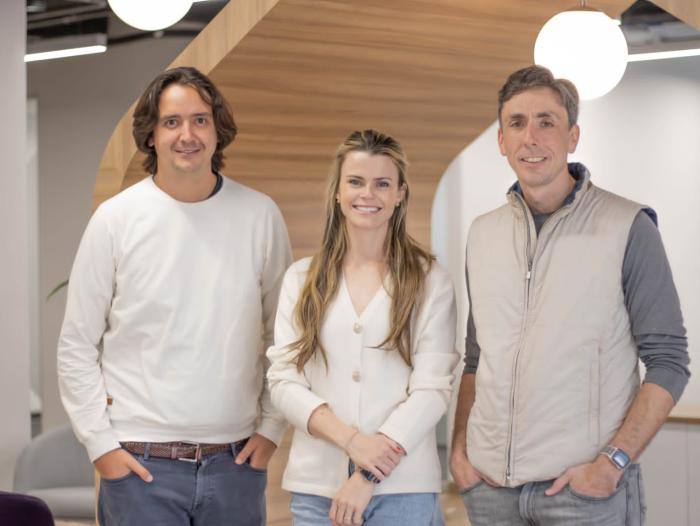As of March of this year, less than 200,000 new homes have been sold, a drop of 25.4% compared to the previous period. Habi's operation would inject liquidity into the market
Via Bloomberg Linea

Bogotá — In the midst of the harsh winter that plagues startups in Latin America and makes access to capital more complex, the Colombian unicorn Habi, who is dedicated to buying and selling real estate, has just completed one of the most relevant transactions in the proptech business in the last year to inject liquidity into the battered housing business.
After the startup ecosystem faced an exceptional year in 2021 with more than US$1.4 billion in a total of 87 deals, last year suffered a reality check and startups in the country only managed to raise just over half of that figure, according to updated data from the audit firm KPMG.
Looking ahead to the first quarter of 2023, KPMG anticipates in the ColombiaTech Report 2022-2023, “venture capital investment in the Americas would remain relatively weak, given the ongoing global macroeconomic concerns.”
Despite the challenges, sectors such as proptech are attracting financial resources and injecting liquidity into the real estate market amid the sharp drop in home sales with which 2023 has begun.
In the midst of this context, the Colombian proptech Habi, which last year reached a valuation of more than US$1 billion and entered the unicorn club, closed a financing agreement for US$100 million with the alternative global investment firm Victory Park. Capital (VPC), which specializes in private credit, the company reported exclusively to Bloomberg Línea.
With the signing of this agreement, Habi exceeded US$550 million between raising debt and equity, company spokespersons said in an interview with Bloomberg Línea.
“This line in particular is intended for the purchase of housing in Colombia” focused on the lower-middle class, explained Habi’s CFO, Marcos Kantt, in an interview with this outlet.
The executive mentioned that, “looking at the headwinds in the region and globally”, it is a relevant operation for the ecosystem.
Kantt stressed that the objective is to improve access to liquidity in the housing market and that these resources will allow them to go in that direction.
The company was founded at the end of 2019 by Brynne McNulty Rojas and Sebastián Noguera and achieved unicorn status last year after a series C round for US$200 million.
Habi made investments equivalent to US$100 million for the purchase of housing in 2022 and since it began operations it has served some 30,000 families.
The announcement comes after the company reported a credit line signed with Bancóldex for some US$6.3 million earlier this year to strengthen its operation and portfolio in Colombia.
Also during the first quarter of 2023, Habi announced debt lines with BBVA Spark and Banorte for around US$42 million for the operation in Mexico.
At the end of last year, the company also indicated that it will allocate more than US$250 million in home purchases in the coming months.
From Habi they reported that the line of credit “has no restrictions on use in terms of cities, with which the destination is Colombia” and that it will be the algorithm of this platform that will dictate where they are going to buy.
The properties that Habi buys will serve as collateral for the line of credit, which, according to the company, has standard market conditions.
Housing market
The housing business has been experiencing contractions since this year in the midst of the multiple challenges facing the sector due to inflation and consequently higher prices of raw materials, the rise in the dollar and delays in start-up of government subsidies.
According to figures from Coordenada Urbana, Camacol’s georeferenced information system, as of March of this year, fewer than 200,000 new homes have been sold, a drop of 25.4% compared to the previous period.
Of these, 142,950 were low-income housing (VIS) that also decreased 25.4% in annual terms.
Habi’s CFO, Marcos Kantt, acknowledges that they are not oblivious to what is happening in the market and that is why one of the challenges is to inject even more liquidity into a market that has been hit by the slowdown.
In this sense, the executive says that the middle class and the lower-middle class are perhaps the most neglected in terms of housing and where there is the greatest friction in the market today.
“There is no one thinking about going public”
Regarding the company’s finances, Kantt highlighted that they currently have the necessary equity to continue operating for “a very long time” and explained that Habi’s business model, based on home purchase, “naturally requires debt to improve yields, financial performance and leverage in this type of structure”.
“Because we got the necessary equity, we are now focusing on how to leverage that equity that we have on the balance sheet,” he said.
Faced with a possible IPO, he mentioned that, although they continue to work to structure themselves as a public company and adopt practical improvements, they do not have it in their plans, despite past comments in this regard.
“We are not looking for an IPO. The Latin American company that says it is looking for an IPO today does not have the right adviser or does not know what is happening in the market. (…) We are all, including Habi and other companies in the sector, operating, improving processes, working on perfecting initiatives and so on,” he said.
In this sense, he said that regardless of whether “they are close or far” from an IPO, they will seek to operate under global standards, which is why they already have financial statements audited by EY, implementing compliance and internal control functionalities, among others.
“The right moment, as always, we will talk about it and we will look at it. That’s where I put on my ex-banker’s hat, there will be no IPO in Brazil, Mexico, or Colombia, until at least 2025 or 2026,” he concluded.